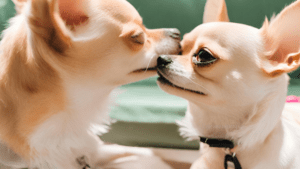Socialization in the puppy
We have seen that by law, puppies under 60 days old cannot be sold.
We have seen that by law, puppies under 60 days old cannot be sold.
At this age the puppy is in the most important stage of youth, that of socialization, a period that will take the puppy to the threshold of puberty. And it is at this stage that the foundations of its behavioral balance are laid and elementary knowledge is built, which will later enable it to cope with new situations and learn or not, to live and relate with other species, including man.
Some veterinarians recommend limiting the puppy’s outings until it has completed its vaccination cycle, which is around three months of age. Unfortunately, it is true that until then the puppy will not be fully protected from possible viral and bacterial diseases, but on the other hand, if it does not have the opportunity to familiarize itself with other dogs, its surroundings, and humans, it will be a problematic future adult.
It is therefore of paramount importance, that the puppy has as many experiences as possible within the first 12 to 16 weeks of life and that these, are repeated several times until the end of the first year.
Ideally, once the first week of acclimatization has passed, take him on daily walks to the places he will be expected to frequent once he is an adult, including noisy or busy places, taking care to Avoid high-risk areas such as unclean areas or areas frequented by many dogs.
During these walks, the puppy will go encouraged, without Never to be forced, to see different people and interact with them, as the interspecific socialization (with the other species) is not generalized to all individuals belonging to the same species, but is limited to the individual characteristics of the subject (e.g., men, women, children, the elderly, people of color, wearing hats, carrying umbrellas etc.). For example, if the dog at this particular time does not see children, it may not understand that they fall into the category of humans.
And now we come to intraspecific socialization, a sore point for most Chihuahuas, as due to their small size, many owners not only avoid contact with other dogs, but also do not hesitate to pick up their puppy for fear of an encounter. By doing so, they prevent the puppy from learning proper communication and encourage the onset of inappropriate behavior with conspecifics.
It is therefore necessary for the owner to allow the puppy to repeatedly come into contact with different dogs (males, females, adults and puppies), arranging encounters with balanced individuals, who as such would never attack a puppy. Better still would be to attend a “puppy class,” which is an educational course that owners and their puppies take followed by a dog educator, thanks to which they will learn how to relate to their dog by encouraging proper management even in everyday domestic life.
Carla Beard
Sing To The Moon Dog Center









